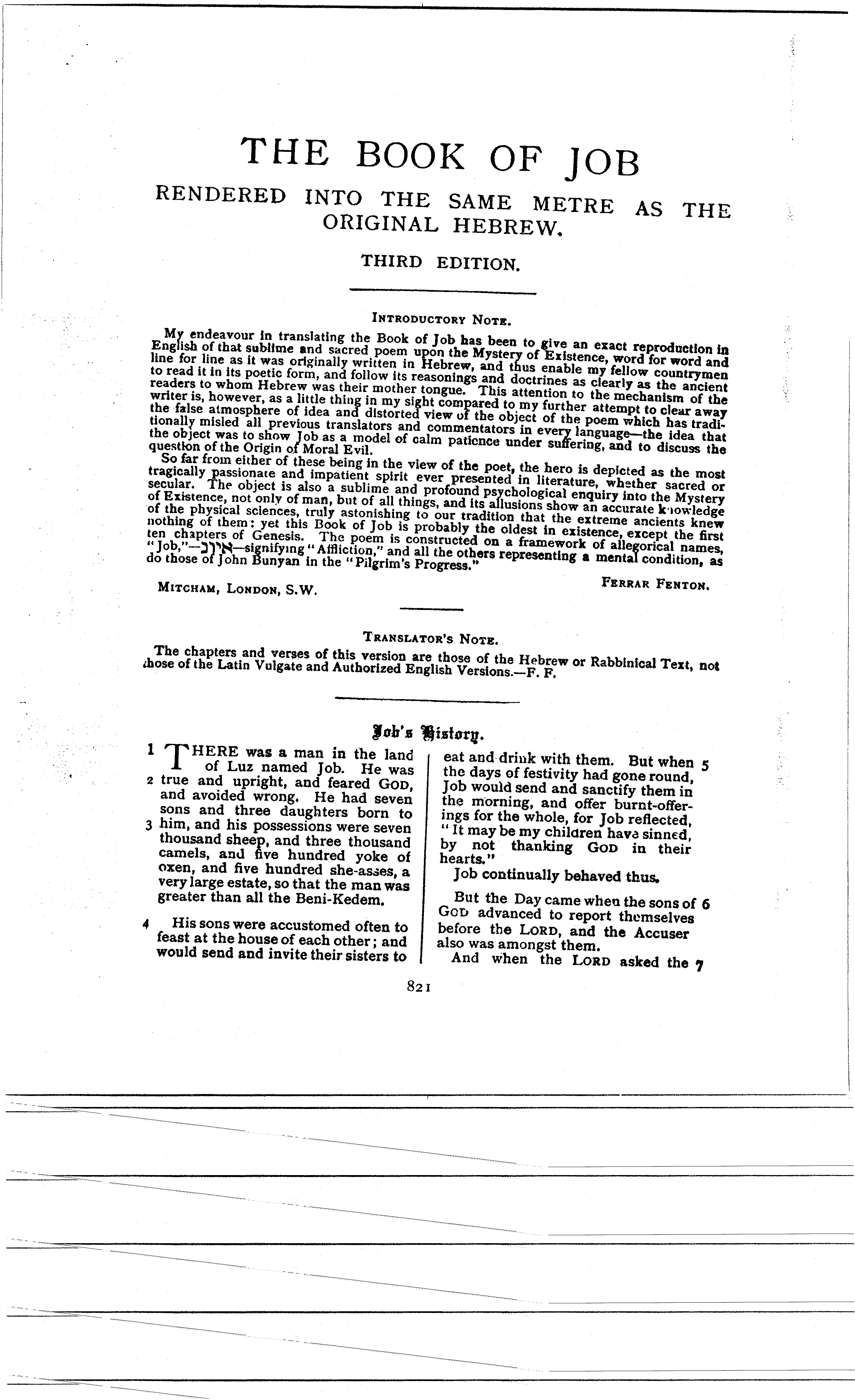Book of Job - Ferrar Fenton Bible Translation page 821
The Psalms, Solomon and Sacred Writers
..
RENDERED INTO THE SAME METRE AS THE ORIGINAL HEBREW. THIRD EDITION. Ixrxonvcwonv Nowx. M d eneavour in translating the Book of job has been to give an ex ct od ti Engnsh of that sublime and sacred poem upon the Mysterg of Existence,awo$$`gr vggrggnig line for line as it was originally written in Hebrew, and t us bl na ee my fellow countrymen to read it in its poetic form, and follow its reasonings and doctrines as clearly as the ancient readers to whom Hebrew was their mother tongue. This attention h to te mechanism of the writer is, however, as alittle thi? in my s§ht compared to my further attempt to clear away the false atmosphere of idea an distorte view o the object of the ll poem which has tradi·· tionay misled all previous translators and commentators in eve languagv-·the idea that the object was to showjoblas a model of calm patience under gi sierng, and to discuss the iquestion ofthe Origin o Moral Evil . So far from either of these being in the view of the oetthe h p, ero is depicted as the most tragically passionate and impatient spirit ever presented in literature, whether sacred or secular. The object is also a sublime and profound choloical pgenquiry into the Mystery ll n gof Existence, not only of man, but of athigs, and its lusions shof h w an accurate knowledge ote physical sciences, truly astonishing to our tradition that the extreme ancients knew nothing of them: yet this Book of job is probably the ldt i oes and all the others reresetinl Fmuux Fsxrox. Mxrcnsu, Lounou, S.W. 'I‘nAnsz.u·on’s Nora. The chapters and verses of this version are those of the Hebrew or Rabbinical Text, not cse ofthe Latin Vulgate and Authorized English Versions·—~FF .. . 3¤h’s §ist¤rg. I THERE was a man in the land of Luz named job. He was2 true and upright, and feared GOD, and avoided wrong. He had seven sons and three daughters born to
3 him, and his possessions were seven thousand sheeg, and three thousand camels, and ve hundred yoke of oxen, and tive hundred she—asses, a very large estate, so that the man was greater than all the Beni·Kedem. 4 His sons were accustomed often to feast at the house of each other; and would send and invite their sisters to eat and-drink with them. But when 5 the days of festivity had gone round, job would send and sanctity them in the morning, and offer burnt~otfer- It may be my children have sinned,
by not thanking Gon in their job continually behaved thus. But the Day came when the sons of 6 Gon advanced to report themselves before the Loxn, and the Accuser also was amongst them. And when the Loan asked the 7 82 1 3-% 4.
